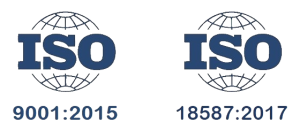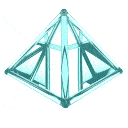
Technical Translation
Technical translation, broadly speaking and as its name suggests, refers to the translation of materials dealing with technical and scientific subjects, such as engineering, IT, electronics, mechanics, and industrial texts in general, and using the specialised terminology of the technical or scientific field involved. Technical translation requires a good understanding of the subject matter and knowledge of the specialised terminology and jargon used in the sector both in the source and in the target language.
The pervasiveness of technology today is such that technical translation has become an essential element which businesses need to address, namely those aiming to win international market shares. Our translation of your technical documents puts your business in a clear position for success.
The world of technology relies on clear and concise technical documents. By nature, technical content translation tends to be somewhat complicated. It requires a dual competence: technical and linguistic. For this reason, and because these skills need to be constantly updated by our translators, this type of translation service usually is a little more costly than when it comes to working on a less complex text. And the difficulty is twofold as the technical terms need to be translated accurately yet must also be adapted to the local culture of the target language.
Highest accuracy is crucial as even a tiny error may result in a huge mistake at a later point. Even so, how many times have we found spelling mistakes in technical instructions for a domestic appliance, showing how badly the translation work was done, or even worse, couldn’t understand at all what the text was trying to say? The translation of technical instructions cannot be improvised!
Formatting is also an important aspect where the translation of technical content is concerned, as desktop publishing is often required when, for example, graphics, images and screenshots have to be edited.
The following are examples of technical documents that we frequently translate:
• Installation, user, operator, machine and maintenance manuals
• Technical instructions
• Descriptions and technical data sheets
• Standard operating procedures
• Online help texts
• Quotes
• Reports
• Marketing materials for technical fields like engineering or manufacturing
• Articles from technical or engineering journals
• Material data safety sheets
• Engineering texts
• Specifications
• Technical drawings
• Training materials
• Processes
• Norms
• Patents
Scientific Translation
Science and medicine are among the most challenging fields when it comes to translation because scientific and medical texts explain complex ideas using science-specific terminology.
Scientific texts are usually written for experts around the world and contain important study findings, investigations, and research results. Universities, colleges, and research institutions rely heavily on professional translators as science cannot manage without translation.
Scientific translators have a great responsibility for the accuracy and reliability of their texts, as scientific works often continue to be read for many years after publication, as well as excerpted, quoted and used in further work by other researchers and research facilities or institutes in other countries. The precision of scientific writing must be reflected in the style of the final, translated texts. The content of the text and reference to the current state of research and literature must be conclusive, correct, and consistent.
Because of this, and the diversity and range of topics within this field, the importance of choosing the right team of scientific translators is paramount.
Before translating any document, we conduct research in order to study terminology and define what terms have to be used depending on the context.
Our specialist translators are highly qualified in various areas of science and in our languages. They have been regularly working on translation projects with universities and institutions, postgraduates, researchers, doctors, and other people associated with various areas of science to their complete satisfaction.
This gives us remarkable experience in fields of scientific translation such as biotechnology, biochemistry, chemistry, geology, biodiversity, environment, sustainable development, food, zoology, botany, renewable energy; and many more.
Types of texts we frequently translate include:
• Scientific articles and literature
• Glossaries and scientific encyclopaedia
• Papers
• Theses
• Pharmaceutical registration documents (market authorisations)
• Study reports
• Test protocols
• Laboratory and clinical testing
• Project documentation
• Presentations
• Conferences and symposiums
• Simulation software (e.g. virtual clinic, virtual patient, biotech)
• Patents
Medical Translation is a sub-category of Scientific Translation.
Medical translation definitely is one of the most complex and technical areas of translation.
Every medical document develops technical ideas through very precise and specific terms. This terminology is to be respected at all costs and with the highest precision. In addition, medical translation involves working in many different areas of specialisation and disciplines in medicine.
In the field of medical and pharmaceutical translation, errors and inaccuracies could cause serious consequences in terms of health, cost and credibility. It is right to say that proper medical translations may indeed save lives. That is why it’s so important to get it right. Medical translation requires thorough, intimate knowledge of the subject matter, not just because of the stakes, but also due to the wide variety of material in this field. A patient file, for example, will be completely different to a research paper or a journal.
Translation of medical documents can also be particularly tricky as the requirements of translation may differ from country to country. As an example, for medical devices sold within the European Union, manufacturers and suppliers are obligated to translate related documentation by the European Commission directive ‘Guidance document – Conformity assessment procedure – Translation procedure – MEDDEV 2.5/5 rev.3’. As part of the quality system or of the documents defining the manufacturing process, the manufacturer should have procedures for ensuring accurate translation of e.g. labelling, instructions for use, and product claims in marketing material. This is of particular importance for user instructions where the safety and claimed performance of the device may be compromised through inadequate translation.
Considering the sensitive nature of many documents in the healthcare industry, we have put in place strict and effective controls to secure data, as well as manage confidentiality and security.
Because we understand the importance of medical translations, our translators are highly qualified native speakers of the languages in question, and additional proficiency in the Latin language serves them especially well as Latin is widely used in medical terminology. Having relevant academic education, the requisite knowledge plus years of experience in this specialist translation sector, they are capable of mastering texts associated with almost any discipline in medicine.
A non-exhaustive list of medical translations that we typically deal with goes here:
• Medical journals
• Conference reports
• Publications
• Project and research reports
• Results of studies
• Test reports and experimental data
• Clinical trial documentation
• Medical brochures
• Healthcare leaflets and brochures
• Medical packaging & labeling
• Medical device instructions
• Dosages for products
• Medical reports
• Patient records
• Regulatory compliance documents
• Patent applications
• Websites, apps and software
Kindly be aware that any of our service descriptions here are just a general outline.
Upon genuine further interest on your part, we will be happy to provide you with
more detailed information and work out a specific proposal tailored to your needs.
![]() “Every word matters”
“Every word matters”



